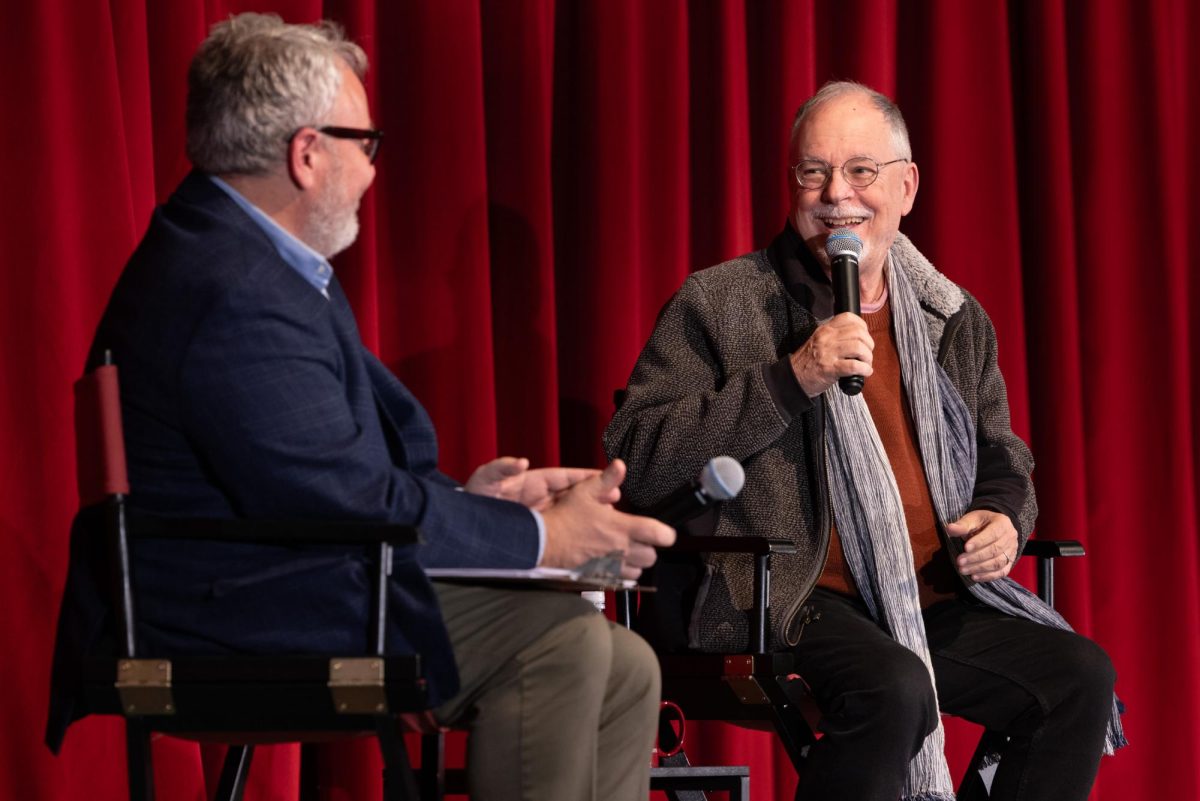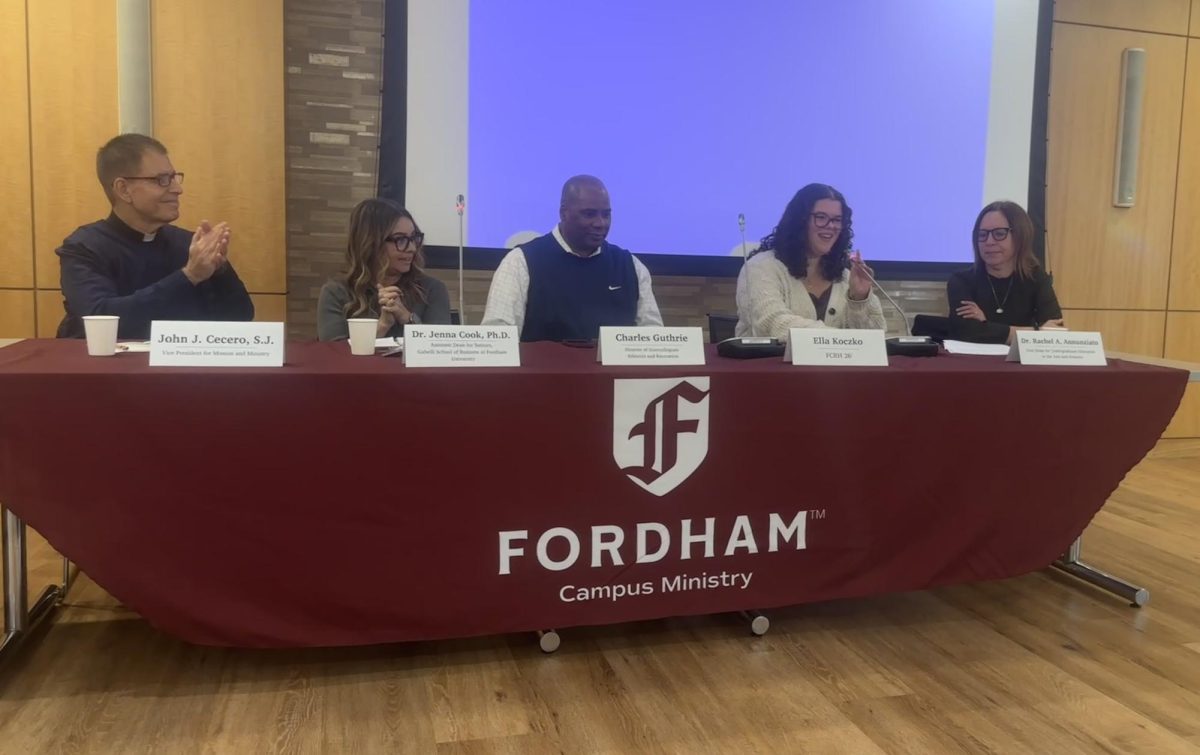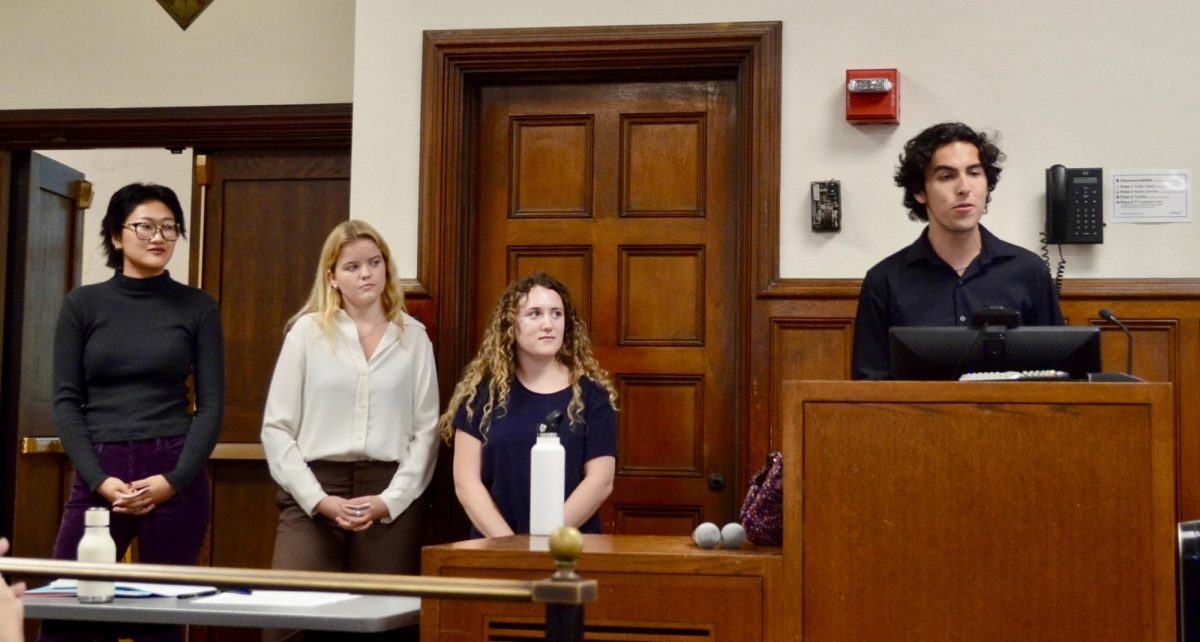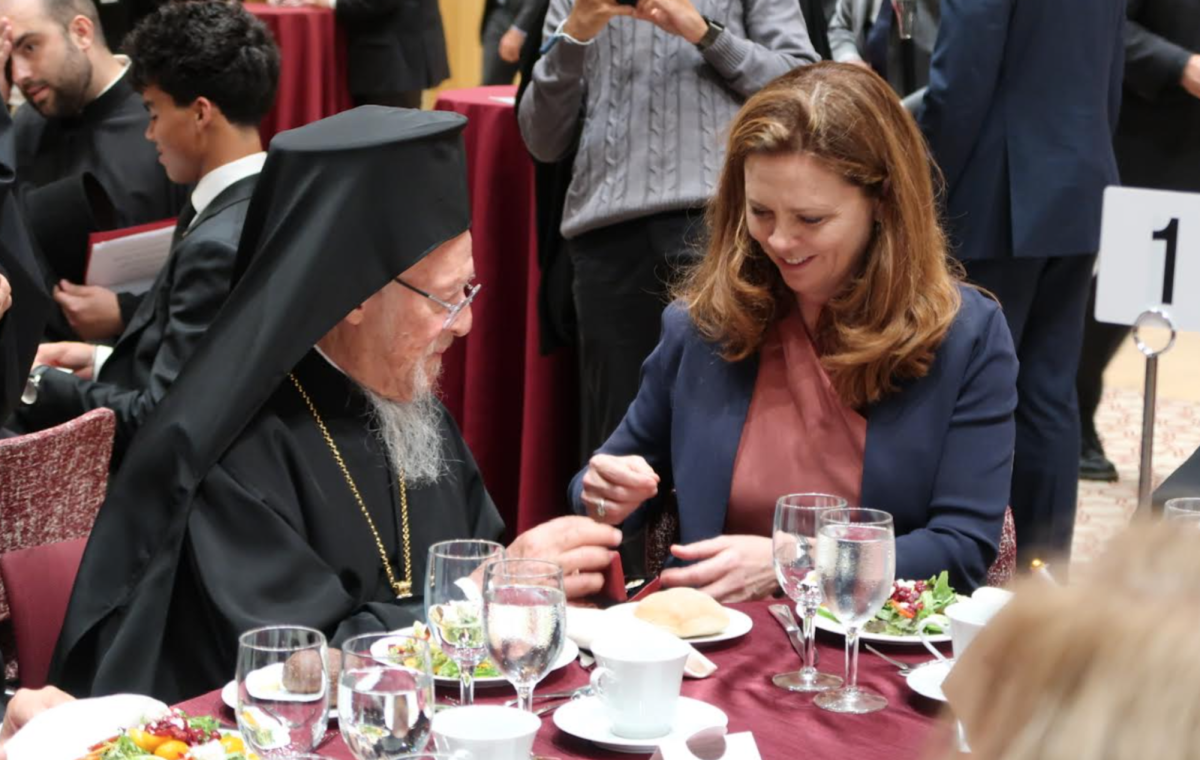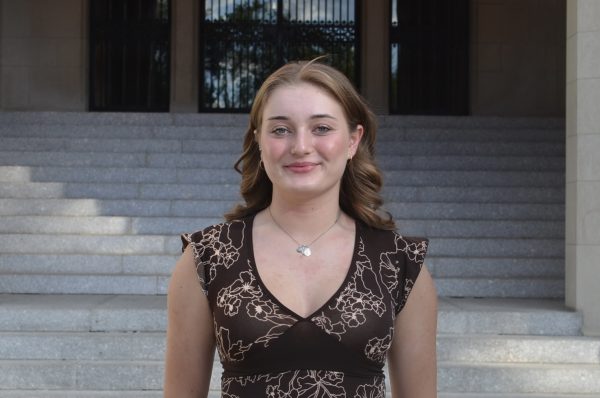Fordham University’s Center on Religion and Culture hosted Gregory Maguire, author of “Wicked,” in a rare public appearance on Oct. 23.
The event, a discussion moderated by theater critic and entertainment writer Jim McDermott, centered around the intersection of spirituality and art, Maguire’s approach to faith as a gay Catholic man and the journey of “Wicked” from page to stage — and now to screen.
McDermott began the discussion by asking about how Maguire’s current life looked, considering the amount of attention “Wicked” is being given.
“It is a very peculiar world to live in when the entire continent seems to go pink and green,” Maguire said. “I’m living in my own fantasy bubble of everybody sees what I see.”
However, Maguire also noted the impact his family had on his separation from the eye of fame.
“I was saved from a certain kind of contamination, I think, by the mere fact that my obligations to my children were more important than my obligations to the needs of my ego,” Maguire said.
McDermott then asked Maguire why he had felt the need to write the novel. Maguire cited his time in London during the rise of Saddam Hussein as a major influence.
“I remember walking through central London and seeing signs … saying, ‘Saddam Hussein: the next Hitler,’ … And I could feel my blood pressure go up,” Maguire said. “But Hitler … what a strong word … What is the power of language? What does Hitler mean when we say it out loud … it was partly from that that I decided I needed to write about how people use language in order to legitimize their right to belittle somebody else or even to kill them.”
However, in thinking about how to write about the subject, Maguire knew he couldn’t use Hitler as a reference. He said his inspiration came when he had a religious vision about Margaret Hamilton, the original Wicked Witch of the West from the 1939 film “The Wizard of Oz.”
“Everybody knows who the Wicked Witch of the West is,” Maguire said. “Nobody knows why she was wicked. She doesn’t even have a name. They just call her by the capital W, Wicked.”
Originally, Maguire was set on writing a truly villainous character, but when he started to write his novel, he worried readers would not understand the character.
“I thought to myself, ‘Oh Gregory. What have you done? Nobody is ever going to get this child … She is too far out there, no one is going to understand her. You can’t abandon her. And you can’t use her, you can’t hijack her life to prove your intellectual points about what moral monsters are… You owe it to this human creature to allow her to live her life in some amount of freedom and don’t make her carry your burdens. Make her live her own burdens,’” Maguire said.
When asked why he typically centers on the misunderstood woman, not only in “Wicked” but in other novels as well, Maguire’s answer was simple.
“Men are just as misunderstood. They’re just not as interesting,” he said. “I find that women and gay men seem … to have a greater capacity than the straight men I know to be able to hold two ideas in their head at the same time. It’s not that straight men … aren’t rational and aren’t feeling, but it’s hard for them to be rational and feeling at the same time.”
A member of the audience asked about Maguire’s opinion on the Quadlings being left out of the musical, sparking a long-winded explanation of how the book was adapted in the first place. Maguire attributed his willingness for the adaptation to be changed in any way the writer seemed fit to the luck he had with writing his own book.
He shared that he sent his book to his agent for the first time about three months after the estate of the writer of “The Wizard of Oz,” L. Frank Baum, entered the public domain. Maguire said that if he was given the right to adapt this story into his own work, why shouldn’t others be able to do the same?
Maguire then shared his story of meeting Stephen Schwartz, the writer of the musical adaptation. Originally, he wasn’t convinced that a musical would properly do the novel — with serious themes — justice, but Schwartz won him over.
“He said, ‘I will admit to you I’ve already conceived the opening scene … it’s going to be a song called, ‘No One Mourns the Wicked.’ And with those five words, he sold the project,” Maguire said. “I could tell that he knew why I had written the book, and that as long as he knew that, I didn’t really care whether the Quadlings were in there or not.”
When speaking on the intersection of faith and art in his work, Maguire cited the existence of belief systems both related to religion and outside of it altogether.
“All groups of people are different,” Maguire said. “We are shaped and formed by the forces against us, and … I wanted Oz to represent the world in which we live.”
To conclude the discussion, Maguire spoke on the existence and centering of children in his novels.
“The wildness of children is their salvation. And frankly, the wildness of children is our salvation too,” he said. “But the wildness within us that we retain from childhood is our first and final nutrition, and we must use it every day.”



































































































































































































